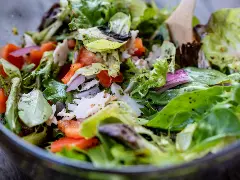

The holiday season is a time of joy, celebration, and indulgence. However, it’s also a period when our consumer habits can significantly impact the environment and our health. Making thoughtful choices about what we buy and consume can make a big difference. In this blog, Vikki Gerrard La Crosse will explore why organic produce matters and how it can enrich your holiday experience.
Understanding the Difference: Organic vs. Conventional Produce
Organic and conventional produce might look similar at first glance, but their differences lie in how they are grown and processed. Organic farming avoids synthetic chemicals, pesticides, and genetically modified organisms (GMOs).
Instead, it emphasizes natural processes and sustainable practices. Conversely, conventional farming often relies on chemical fertilizers, pesticides, and GMOs to maximize yield and reduce costs. Understanding these distinctions allows you to make more informed choices that align with your values.
The Environmental Impact of Choosing Organic
Choosing organic produce has a profound positive impact on the environment:
Reduced Chemical Use: Organic farming eliminates the need for harmful pesticides and fertilizers, reducing soil and water contamination.
Biodiversity Support: Organic practices encourage diverse ecosystems with beneficial insects, plants, and animals working together naturally.
Lower Carbon Footprint: Organic farms often utilize renewable resources and conserve energy, reducing greenhouse gas emissions.
Combat Climate Change: Organic farming practices such as crop rotation and composting help sequester soil carbon, which is vital in mitigating climate change.
Furthermore, organic farming practices also reduce carbon emissions and promote sustainable agriculture. Vikki Gerrard La Crosse WI, believes that by choosing organic produce this holiday season, you support a more environmentally friendly food system.
Health Benefits of Consuming Organic Produce
Eating organic produce isn't just good for the planet; it’s beneficial for your health as well:
Fewer Pesticides: Organic foods contain fewer pesticide residues, minimizing exposure to potentially harmful chemicals. This is especially important for pregnant women, young children, and those with compromised immune systems.
Nutrient-Rich: Studies suggest that organic produce may have higher levels of certain nutrients, such as antioxidants, which are crucial for overall health. Due to the absence of synthetic chemicals, organic produce also has higher levels of vitamins, minerals, and antioxidants.
No GMOs: Choosing organic means avoiding genetically modified organisms, which some studies suggest could harm human health in the long term.
Better Taste: Many people find that organic fruits and vegetables have a fresher, more vibrant taste, enhancing your holiday meals.
Additionally, organic produce is often richer in nutrients than conventionally grown produce. Studies have shown that organically grown fruits and vegetables have higher levels of antioxidants, vitamins, and minerals. These nutrients are essential for maintaining good health and can help boost your immune system during the cold winter.
Supporting Local Farmers and Communities
Choosing organic produce also has a positive impact on our communities. Organic farms often prioritize fair labor practices and provide good working conditions for their employees. They also support local economies by sourcing resources and selling their products locally. This helps create jobs and supports small businesses within the community.
In addition, organic farming promotes biodiversity, protecting native plants and wildlife in the area. This benefits the ecosystem and creates a more beautiful and diverse landscape for all to enjoy.
Making a Difference One Meal at a Time
Switching to organic produce might seem daunting, but every small step counts. Start by incorporating a few organic items into your holiday meals and gradually increase as you become more comfortable with the change. You can join a community-supported agriculture (CSA) program or visit your local farmer's market to find fresh, organic produce.
By choosing organic produce for your holiday feasts, you are not only making a positive impact on the environment and supporting local communities, but you’re also nourishing yourself and your loved ones with healthier food options.
How Can We Support Organic Agriculture?
Now that we understand the numerous benefits of choosing organic produce, how can we make it a part of our daily lives? Here are some simple ways to support organic agriculture:
- Shop at local farmers' markets or join a Community Supported Agriculture (CSA) program to purchase directly from organic farmers.
- Look for the USDA Certified Organic label when shopping at grocery stores and supermarkets.
- Start your organic garden at home, even if it's just a small herb or vegetable patch.
- Educate others on the benefits of choosing organic produce and encourage them to make the switch as well.
Tips for Sourcing Organic Produce During the Holiday Season
Finding organic produce during the holidays can be easier than you think:
Local Farmers' Markets: Visit nearby farmers' markets for fresh, locally grown organic produce. You’ll support local farmers while getting seasonal ingredients.
Organic Sections in Supermarkets: Most supermarkets now have dedicated organic sections where you can find everything from fruits and vegetables to organic snacks.
Online Organic Retailers: Consider ordering from online organic stores that deliver straight to your door. This will make holiday prep more convenient.
Final Thoughts
Vikki Gerrard La Crosse believes that choosing organic produce this holiday season is a powerful way to positively impact your health and the environment. Making informed, sustainable choices ensures your celebrations are joyful and aligned with your values. Ready to make a difference? Start incorporating organic produce into your holiday plans and enjoy the benefits of healthier, tastier, and eco-friendly meals.







Comments
Post a Comment